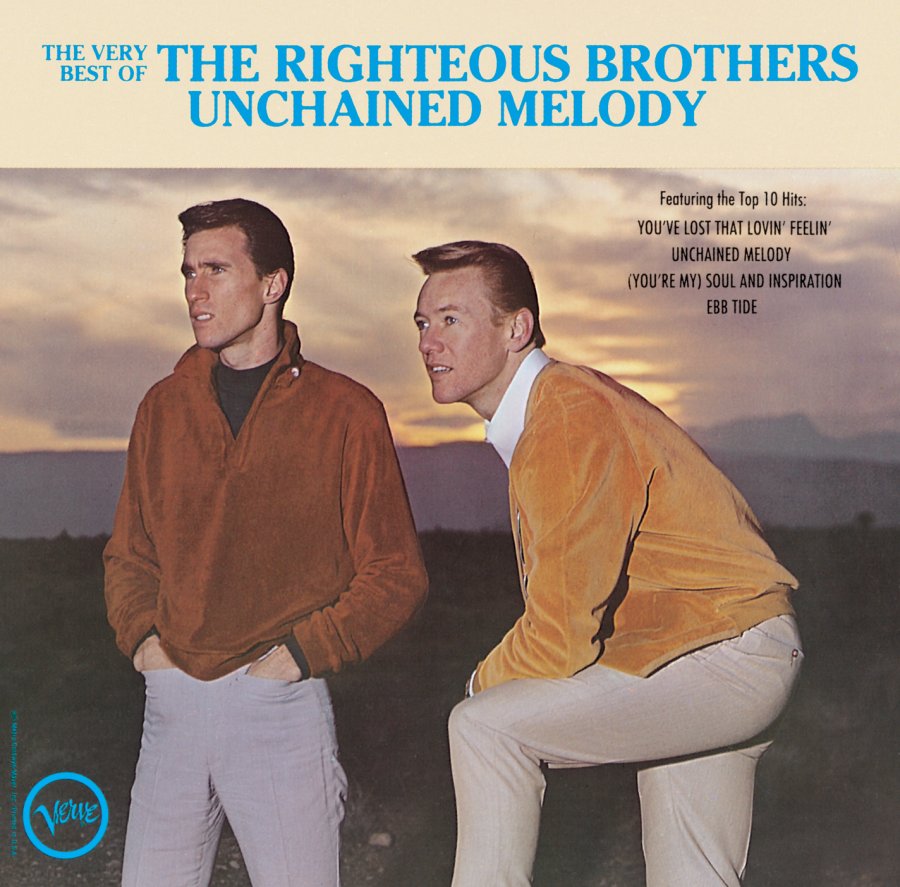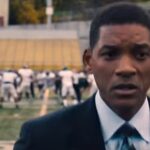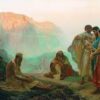Why We Need Heavenly Vision in Order to Enact Earthly Change
I’m outraged by recent events in Ferguson and in New York City, and you probably are too. But I’ve found that many folks are only selectively outraged—mad at the police or mad at Michael Brown and Eric Garner…mad at the looters or mad at the so-called civil rights leaders who stir up more strife rather than promote unity…or mad at politicians who seem to use these tragedies to promote their own influence.
Let’s be honest: There’s plenty of blame to go around. Some of the blame is attributable to how the recent incidents have been handled, but the bigger problem is distrust stemming from decades of friction, misunderstanding, and prejudice.
As a preacher, I can’t help but bemoan the fact that none of this is God’s intention for His people. The Scriptures are full of instructions about how to seek justice and get along: “These are the things you shall do: speak each man the truth to his neighbor; give judgment in your gates for truth, justice, and peace” (Zechariah 8:16).
The older I get, the more I’m also struck by the stark contrast between life on earth and what life is like in heaven. You see, there won’t be any racial divides in heaven. There will be complete unity among people redeemed by God “out of every tribe and tongue and people and nation.” And rather than divisions between rich and poor, the powerful and the powerless, every one of us will reign as “kings and priests to our God” (Revelation 5:9-10).
People of faith are frequently accused of being so heavenly minded that they are of no earthly good. Although I’ve met some people who match this description, that is actually the exception rather than the rule. In fact, I would argue that we desperately need more heavenly minded people if we are going to transform troubled communities like Ferguson.
Martin Luther King Jr. was a leader who modeled this well. Yes, he was well aware of how American had fallen short of its ideals. Equality under the law was far from the reality for many minorities, especially in cities still marred by segregation.
In King’s famous “I Have a Dream” speech in front of a crowd of over 250,000 people at the Lincoln Memorial on August 28, 1963, he contrasted the continuing plight of many black Americans with the American dream envisioned in lofty documents such as our Declaration of Independence, Constitution, and Emancipation Proclamation. MLK referenced such things as poverty, discrimination, segregation, and police brutality as ongoing problems even 100 years after Lincoln signed the Emancipation.
However, while Dr. King didn’t shy away from honestly addressing the difficult issues of his day, his message was also filled with abounding hope:
Let us not wallow in the valley of despair. I say to you today, my friends, that in spite of the difficulties and frustrations of the moment, I still have a dream. It is a dream deeply rooted in the American dream.
It’s important to notice that MLK saw his dream as being “deeply rooted in the American dream.” Dr. King wanted to see America transformed into the shining city on a hill that its founders proclaimed. In a nutshell, he was calling the nation to live up to its own dream and potential—to “walk its talk” and reflect its highest values. “I have a dream,” he said, “that one day this nation will rise up and live out the true meaning of its creed—‘We hold these truths to be self-evident: that all men are created equal.’”
Dr. King’s closing crescendo painted an awesome portrait of what race relations could look like in our nation:
I have a dream that one day on the red hills of Georgia the sons of former slaves and the sons of former slave-owners will be able to sit down together at a table of brotherhood…
I have a dream that my four little children will one day live in a nation where they will not be judged by the color of their skin but by the content of their character.
I have a dream today!
I have a dream that one day, down in Alabama…little black boys and little black girls will be able to join hands with little white boys and white girls as sisters and brothers.
I have a dream today!
I have a dream that one day every valley shall be exalted, every hill and mountain shall be made low, the rough places will be made plain, and the crooked places will be made straight, and the glory of the Lord shall be revealed, and all flesh shall see it together.
This is our hope. This is the faith that I will go back to the South with. With this faith we will be able to hew out of the mountain of despair a stone of hope.
With this faith we will be able to transform the jangling discords of our nation into a beautiful symphony of brotherhood. With this faith we will be able to work together, to pray together, to struggle together, to go to jail together, to stand up for freedom together, knowing that we will be free one day.
This will be the day, this will be the day when all of God’s children will be able to sing with a new meaning: “My country, ‘tis of thee, sweet land of liberty, of thee I sing. Land where my fathers died, land of the pilgrim’s pride, from every mountainside, let freedom ring.” And if America is to be a great nation, this must become true.
And so let freedom ring from the prodigious hilltops of New Hampshire. Let freedom ring from the mighty mountains of New York. Let freedom ring from the heightening Alleghenies of Pennsylvania! Let freedom ring from the snow-capped Rockies of Colorado. Let freedom ring from the curvaceous peaks of California.
But not only that.
Let freedom ring from Stone Mountain of Georgia. Let freedom ring from Lookout Mountain of Tennessee. Let freedom ring from every hill and every molehill of Mississippi, from every mountainside, let freedom ring!
And when this happens, when we allow freedom to ring, when we let it ring from every village and every hamlet, from every state and every city, we will be able to speed up that day when all of God’s children, black men and white men, Jews and Gentiles, Protestants and Catholics, will be able to join hands and sing in the words of the old Negro spiritual: “Free at last! Free at last! Thank God Almighty, we are free at last!”
Notice that Dr. King’s dream was not only rooted in the American dream. He was a preacher of the gospel, and his message of hope and change was tied to his scriptural perspective that God is the ultimate Liberator. Why should people of all racial groups be treated equally? Because God is their Creator, and they all have a right to be His children.
Many people today claim to share Dr. King’s objective. Yet often there’s something missing. While their mission typically is fueled merely by well-meaning humanism, King’s was energized by holy zeal and a sense of divine purpose. Nothing less will get the job done.
Over the decades following MLK’s speech in 1963, his dream has often been hijacked by corrupt demagogues on all sides of the political spectrum. Some of these leaders claim to be preachers of the gospel, but their actions seem more like wolves in sheep’s clothing. Instead of advancing the unity and brotherhood Dr. King envisioned, they have stirred the pot of racial prejudice and distrust.
Every time I hear MLK’s famous “I Have a Dream” speech, I get inspired—and angry. I get inspired by his powerful and lofty vision of a better world, where racial harmony is the norm rather than the exception. Yet I get angry because we’re still a long way from the fulfillment of that dream.
There’s plenty of blame to go around, of course. Politicians, preachers, activists, educators, rappers, media executives, and self-described “civil rights leaders”—we’ve all fallen short of our responsibility to further the cause of racial harmony.
As we seek to address our remaining divisions on earth, may God give us a heavenly vision, as Dr. King so nobly demonstrated.


